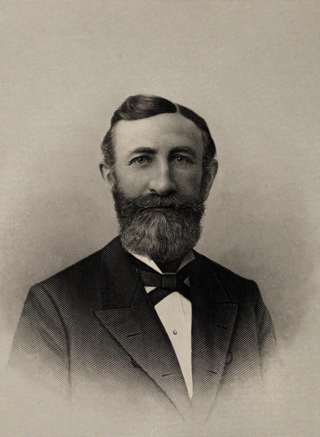
Emil Wallber was a German American lawyer and judge. He was the Mayor of Milwaukee, Wisconsin, at the time of the Bay View massacre and labor strike, and adopted the city's first ordinance on an eight-hour work day.
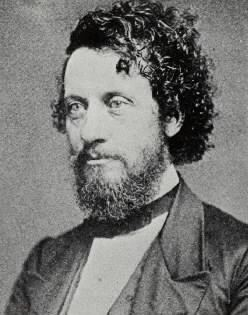
Arthur MacArthur Sr. was a Scottish immigrant to America, lawyer, and judge. He was the fourth Governor of Wisconsin and was an associate justice of the Supreme Court of the District of Columbia. He was the father of General Arthur MacArthur Jr., and paternal grandfather of General Douglas MacArthur. MacArthur is the modern spelling used by his descendants, but in documents from his own time his name was spelled McArthur.

William Augustus Barstow was an American businessman, politician, and public administrator. He was the third governor and second Secretary of State of Wisconsin, and served as a Union Army officer during the American Civil War. Before Wisconsin became a state, he was instrumental in the creation of Waukesha County.

Coles Bashford was an American lawyer and politician who became the fifth governor of Wisconsin, and one of the founders of the U.S. Republican Party. His one term as governor ended in a bribery scandal that ended in him fleeing Wisconsin, but he was later instrumental in the government of the newly formed Arizona Territory.

Edward Salomon was a Jewish American politician and the 8th governor of Wisconsin, having ascended to office from the lieutenant governorship after the accidental drowning of his predecessor, Louis P. Harvey. He was the first Jewish governor of Wisconsin.

Alexander Williams Randall was an American lawyer, judge, and Republican politician from Waukesha, Wisconsin. He served as the 22nd United States Postmaster General, during the administration of President Andrew Johnson (1865–1869). He previously served as the sixth governor of Wisconsin (1858–1862) and, as governor, was instrumental in raising and organizing the first Wisconsin volunteer troops for the Union Army during the American Civil War. He is the namesake of Camp Randall and Camp Randall Stadium.

John Whitcome Reynolds Jr. was the 36th governor of Wisconsin (1963–1965) and served 21 years as a United States district judge in the Eastern District of Wisconsin (1965–1986). A Democrat, he previously served as the 34th attorney general of Wisconsin (1959–1963).
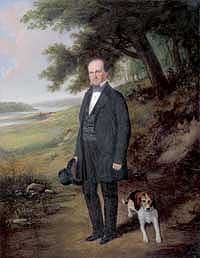
Morgan Lewis Martin was a delegate to the United States House of Representatives from Wisconsin Territory during the 29th United States Congress (1845–1847). He also served as a member of the Wisconsin State Senate and Wisconsin State Assembly, and served as a county judge in Brown County, Wisconsin.

Thomas Edward Fairchild was an American lawyer and judge. He served forty years as a judge of the United States Court of Appeals for the Seventh Circuit. Earlier in his career he was a justice of the Wisconsin Supreme Court, United States Attorney for the Western District of Wisconsin, and the 31st Attorney General of Wisconsin.

Charles Hathaway Larrabee was an American lawyer and Democratic politician from Dodge County, Wisconsin. He served one term in the U.S. House of Representatives, representing Wisconsin's 3rd congressional district during the 36th Congress (1859–1860), and was an ex officio member of Wisconsin's first state Supreme Court (1848–1953) due to his role as one of Wisconsin's first elected circuit court judges. He also served as a Union Army officer during the American Civil War.
John Theodore Chisholm is an American prosecutor and politician who has served as Milwaukee County District Attorney since 2007. A career prosecutor, Chisholm specialized in complex conspiracy prosecutions before his election as district attorney in 2006.

Edward George Ryan was an Irish American immigrant, lawyer, and Wisconsin pioneer. He was the 5th chief justice of the Wisconsin Supreme Court.
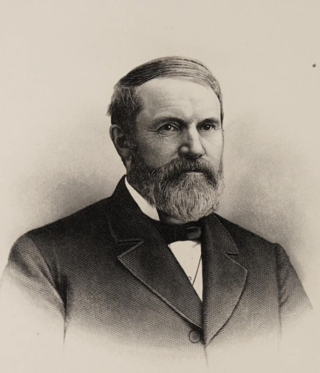
Luther Swift Dixon was an American lawyer, jurist, and Wisconsin pioneer. He was the 4th chief justice of the Wisconsin Supreme Court, serving from 1859 to 1874. He previously served as a Wisconsin circuit court judge and district attorney in Columbia County, Wisconsin.

Jason Downer was an American lawyer, judge, and Wisconsin pioneer. He was a justice of the Wisconsin Supreme Court from 1864 to 1867. Earlier in his life, he was one of the earliest editors of the Milwaukee Sentinel in 1845, but quit after a half year to return to his legal career. He was the namesake of Milwaukee-Downer College and Downer Avenue in Milwaukee, Wisconsin.

Russell Smith Taft was a lawyer, politician and judge who served as the 29th lieutenant governor of Vermont and chief justice of the Vermont Supreme Court.
Henry Clay Sloan was an American lawyer and politician. He served two non-consecutive terms in the Wisconsin State Assembly. His father, A. Scott Sloan, and uncle, Ithamar Sloan, both served in the United States House of Representatives.
Jedediah Philo Clark Emmons, more commonly referred to as Jed P. C. Emmons or J. P. C. Emmons, was an American attorney and politician who served as the 12th Florida Attorney General.
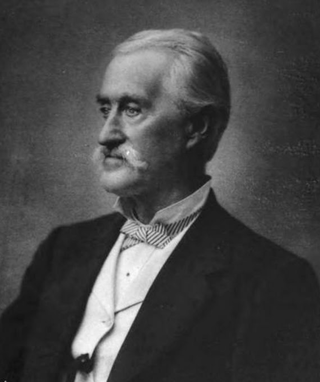
Alexander Lynn Collins was an American lawyer, judge, and politician. He was an important leader of the Whig Party in the early years of Wisconsin, serving as party chairman, nominee for United States Congress, for United States Senate, and for Governor of Wisconsin. He also served as a Wisconsin Circuit Court Judge and a member of the University of Wisconsin Board of Regents. In historical documents, his middle name is sometimes spelled "Linn" and he is sometimes referred to as "A. L. Collins."

Charles Hadley Hamilton was an American lawyer, businessman, and Republican politician. He served as city attorney of Milwaukee, Wisconsin, and represented downtown Milwaukee for one term in the Wisconsin State Assembly. He was the son of Union Army general Charles Smith Hamilton.

















